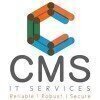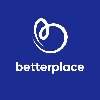1422 RGB Webtech Jobs

Back End Developer
RGB Webtech
posted 9hr ago
Job Role Insights
Key skills for the job
Job Description
- Collaborate with front-end developers, designers, and other team members to understand project requirements and translate them into well-structured back-end solutions.
- Develop and maintain server-side logic using programming languages like Python, Ruby, Java, Node. js, or others.
- Design and implement RESTful APIs to facilitate communication between front-end interfaces and back-end services.
- Create and optimize databases, ensuring data integrity, performance, and security.
- Write clean, modular, and reusable code that adheres to coding standards and best practices.
- Integrate third-party services, APIs, and libraries to extend the functionality of web applications.
- Optimize applications for speed, scalability, and responsiveness, considering factors like database queries and server load.
- Collaborate with front-end developers to ensure smooth integration and communication between front-end and back-end systems.
- Troubleshoot and debug issues in back-end code, and provide timely solutions to technical challenges.
- Stay updated on industry trends, emerging technologies, and best practices related to back-end development.
- Collaborate with the QA team to test and validate back-end functionalities and data flows.
- Maintain and update existing back-end systems with new features, enhancements, and improvements.
- Participate in code reviews to maintain code quality and consistency across the development team.
- Bachelors degree in Computer Science, Software Engineering, or a related field (or equivalent work experience).
- Proven experience as a Back-End Developer with a portfolio showcasing back-end development projects.
- Proficiency in one or more programming languages commonly used for back-end development (Python, Ruby, Java, Node. js, etc. ).
- Strong understanding of server-side architecture, database management, and RESTful API design.
- Experience with web frameworks and libraries specific to back-end development (Django, Ruby on Rails, Express. js, etc. ).
- Familiarity with version control systems (e. g. , Git) and collaborative coding workflows.
- Knowledge of database management systems (e. g. , SQL, NoSQL) and query optimization techniques.
- Ability to work collaboratively in a team environment, communicate effectively, and provide constructive feedback.
- Problem-solving skills and the ability to debug and troubleshoot technical issues.
- Understanding of cloud platforms and services (AWS, Azure, Google Cloud) is a plus.
- Knowledge of microservices architecture and containerization technologies (Docker, Kubernetes) is a plus.
Employment Type: Full Time, Permanent
Read full job descriptionSimilar Jobs for you
Share an Interview



















